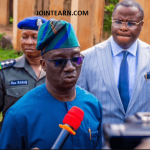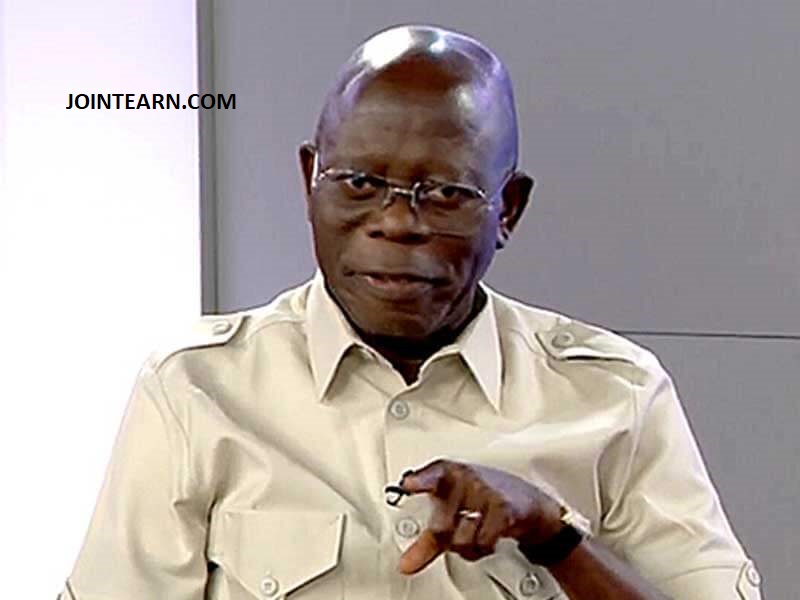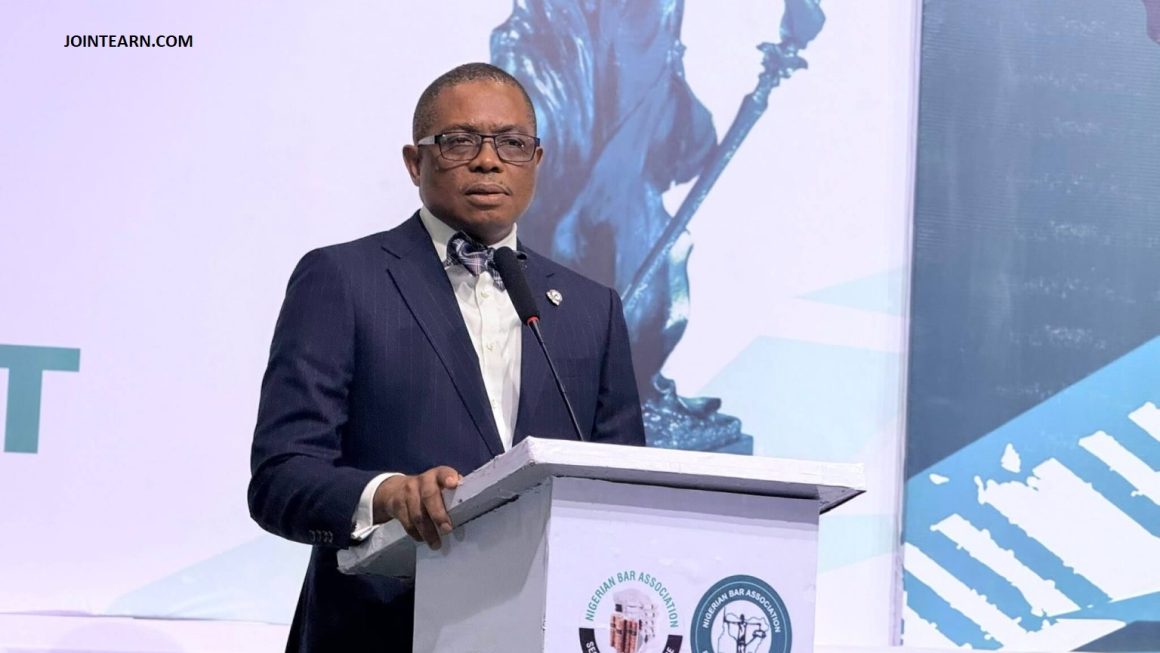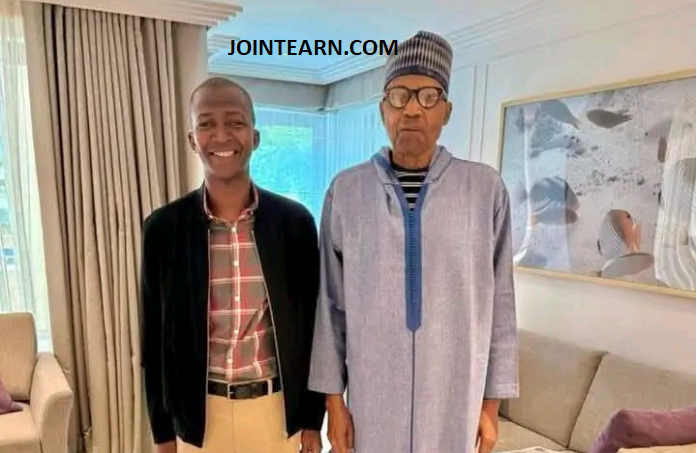Adams Oshiomhole, the former governor of Edo State and National Chairman of the All Progressives Congress (APC), has clarified his earlier controversial comments regarding politicians’ sins being forgiven upon joining the ruling party. The remarks, which sparked widespread reactions and criticism from various political groups, led to an outcry from opposition figures and some members of the public, who viewed the statement as an endorsement of political opportunism and a mockery of ethical standards.
In a recent press briefing, Oshiomhole addressed the backlash, explaining the context of his words and apologizing if they were misconstrued. The clarification comes amid heightened political tensions in the lead-up to Nigeria’s upcoming elections and as the APC continues to expand its influence across the country.
The Original Remarks
Oshiomhole’s controversial comments were made during a speech at a political event where several defectors from other parties joined the APC. While welcoming the new members, Oshiomhole remarked that the APC is a “party of redemption” and that it provides a chance for people to “repent” of their past political “sins.”
He said, “If you have done wrong in the past and you want to start anew, APC is the place for you. We forgive your sins once you join us. Everyone can be redeemed in this party.”
The statement quickly went viral, drawing intense reactions from critics, who questioned the integrity of a political party that, according to them, appeared to offer absolution for past wrongdoings without accountability. Many felt that Oshiomhole’s words suggested that joining the APC was a shortcut to escaping political and personal transgressions.
Opposition figures, in particular, accused the ruling party of enabling corruption and unethical practices by offering a “safe haven” for defectors, regardless of their past actions. Some pointed out that the remarks were insensitive, especially in a country where issues like corruption and accountability remain critical concerns for citizens.
Oshiomhole’s Clarification
In response to the public outcry, Oshiomhole addressed the issue head-on, stating that his comments were not meant to be taken literally or in any way suggest that wrongdoing would be ignored by the APC. Instead, he explained that he was referring to the concept of political redemption in the sense that the APC offers a fresh start for individuals seeking to align themselves with the party’s values and goals.
“I understand the concerns that my words may have caused, and I would like to clarify that I did not mean that we condone corruption or criminal behavior within our party. What I was trying to convey is that the APC provides an opportunity for people who may have been wronged in the past, whether politically or otherwise, to come into a space where they can contribute positively and be part of a national project aimed at improving Nigeria,” Oshiomhole said during the press briefing.
He further explained that the party had a rigorous vetting process for new members, and anyone who joins the APC is expected to adhere to its core values, which include integrity, accountability, and service to the people.
“I also want to state that anyone joining the APC must do so with a commitment to the values that we stand for. It is not a place where people are allowed to escape accountability. The APC is about building a better future for Nigeria, and we are focused on ensuring that everyone, regardless of their past, works toward that goal,” he added.
Political Opportunism or Strategic Alliance?
While Oshiomhole’s clarification may have soothed some of the concerns, his initial remarks still left many questioning the nature of political defections and the growing trend of party-switching in Nigerian politics. Political commentators argue that many politicians who defect to the APC do so not out of a genuine desire to serve the people, but rather to secure political positions and benefits.
The trend of defections has become a significant feature of Nigerian politics, especially in the lead-up to elections. Politicians who were previously aligned with opposition parties often switch allegiances to the ruling party, seeking to align themselves with the political powers that can offer them the best opportunities for advancement. Critics of this practice often label it as opportunistic and self-serving, with little regard for the values or platforms of the parties they leave behind.
Oshiomhole, however, defended the APC’s stance on defections, stating that the party welcomes anyone who shares its vision for Nigeria’s development, irrespective of their previous party affiliation.
“We are not about political betrayal or opportunism. People come to the APC because they believe in what we stand for. Our party represents the aspirations of the Nigerian people, and we are proud to have people from all walks of life join us in our mission to move Nigeria forward,” Oshiomhole explained.
He further emphasized that the APC’s inclusive approach allowed for the formation of a broad-based coalition, which was essential in achieving the party’s objectives of national unity and progress. However, he also noted that while the party is open to all, it expects high standards of conduct from its members and will not tolerate any form of corruption or misconduct.
Public Perception and Accountability
Despite Oshiomhole’s clarifications, many Nigerians remain skeptical about the motivations behind political defections. Critics argue that the practice often undermines the credibility of political institutions and erodes public trust in the political process. For many, the idea of “forgiving sins” through political alignment is seen as a cynical attempt to consolidate power rather than address the underlying issues facing the country.
Transparency and accountability are two key demands that Nigerian voters have consistently voiced, especially in the context of the country’s ongoing struggles with corruption, poor governance, and mismanagement of public resources. As such, many Nigerians remain unconvinced by the APC’s open-door policy towards defectors, questioning whether it will truly lead to meaningful reform or if it is simply a strategy to maintain political dominance.
The Way Forward
In the wake of the controversy, Oshiomhole’s remarks have brought attention to the issue of political defections and the role of integrity in Nigerian politics. As the country approaches the next election cycle, it is likely that the issue of party-switching and its implications for governance will remain a prominent topic of debate.
While the APC continues to attract new members, the challenge for Oshiomhole and his party leaders will be to ensure that the party’s values of accountability and integrity are upheld, and that political defections do not dilute the party’s commitment to its founding principles.
For now, Oshiomhole’s clarification may have defused some of the immediate concerns, but the conversation about political ethics, accountability, and reform in Nigeria is far from over. As the political landscape continues to evolve, it will be crucial for politicians and political parties alike to address these issues head-on if they are to maintain public trust and deliver on their promises to the Nigerian people.












